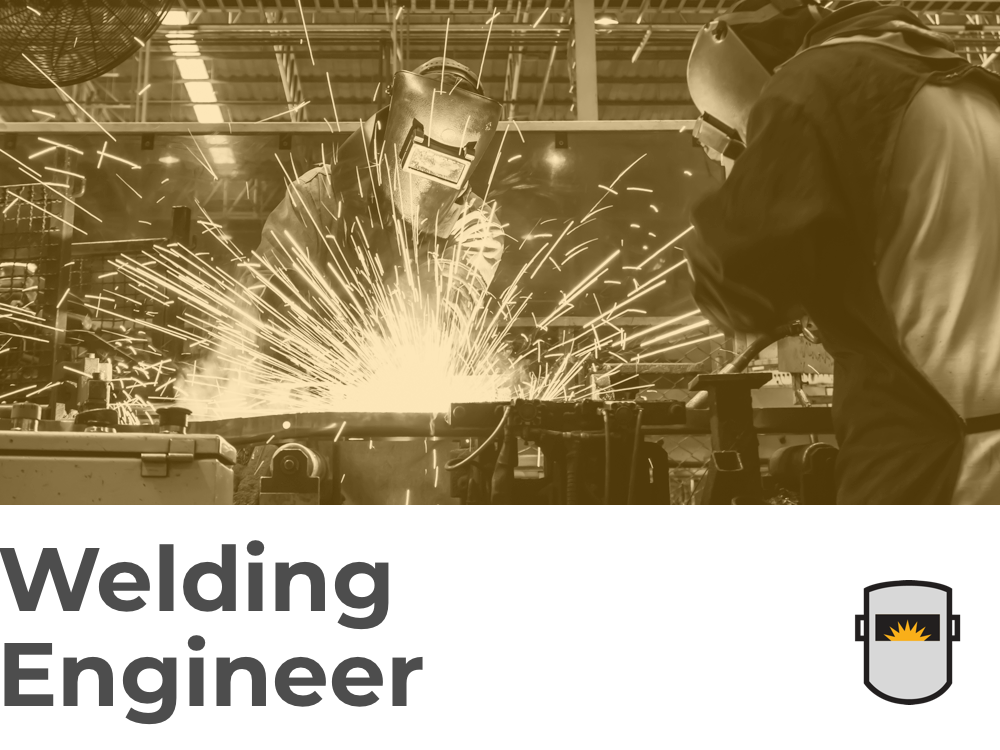Take the First Step Toward Your Welding Career Now!
Welding Engineer

More than half the products that are manufactured in the United States have come in contact with a welding engineer. Which means, as a welding engineer, you could find yourself working within a variety of different industries. Learn more about the discipline of welding engineering, and see how you can enter the field.
What A Welding Engineer Does
As a welding engineer, you are skilled in welding plus have a background in math and science. The main focus of your career will be on developing procedures for welders to follow. You are crucial to the development of any of the projects you’re on. Here are some examples of what your days will look like:
- Train welders on new techniques and practices of the trade
- Supervise welders on projects
- Evaluate welders' work
- Make improvements to projects
- Ensure work is being done according to specifications
- Be responsible for quality control
- Perform the job of the welder when necessary
- Perform administrative duties such as work orders and technical reports
- Design, examine, and evaluate the welds you create
- Be hands on for the initial starting of any project
- Develop ways to improve welding processes
- Work with suppliers
How To Become A Welding Engineer
- If you’re in high school right now, take classes like algebra, trig, and calculus, Plus, biology, chemistry, and physics. Don’t forget to take a computer programming class or two.
- Get your high school diploma or GED.
- Major in materials science and engineering, or any other related engineering field. Be certain your enrolled in an accredited program or you won’t be able to become a licensed engineer.
- Do an internship or co-op; most colleges offer one or the other.
- Five-year programs where you get both your bachelor’s and master’s degrees are available.
- Sit for the AWS Certified Welding Engineer exam. Requirements are: a bachelor’s degree of science in engineering plus one year of experience; bachelor’s of science in engineering technology plus two years of welding experience; a related bachelor’s of science degree plus five years welding experience; an associate degree in applied science plus 10 years of welding; or a high school diploma plus 15 years of welding experience.
Salary And Job Outlook
The Bureau of Labor Statistics reported the average annual salary for welding engineers in 2023 was $110,430, with the top 10 percent making $165,580. Depending on where you work, your state, and how much experience you have will determine what you earn.
Many employers prefer hiring candidates that have at least a bachelor’s degree in a related field of engineering, plus some actual welding experience.
There is not any employment growth predicted for this particular field. However, the entire field of welding is growing at average speed. There are plenty of jobs posted across most online job boards that are specific to welding engineers. As long as you have the appropriate degrees and experience then you should be able to find a job in your field.
Find a welding school near you!